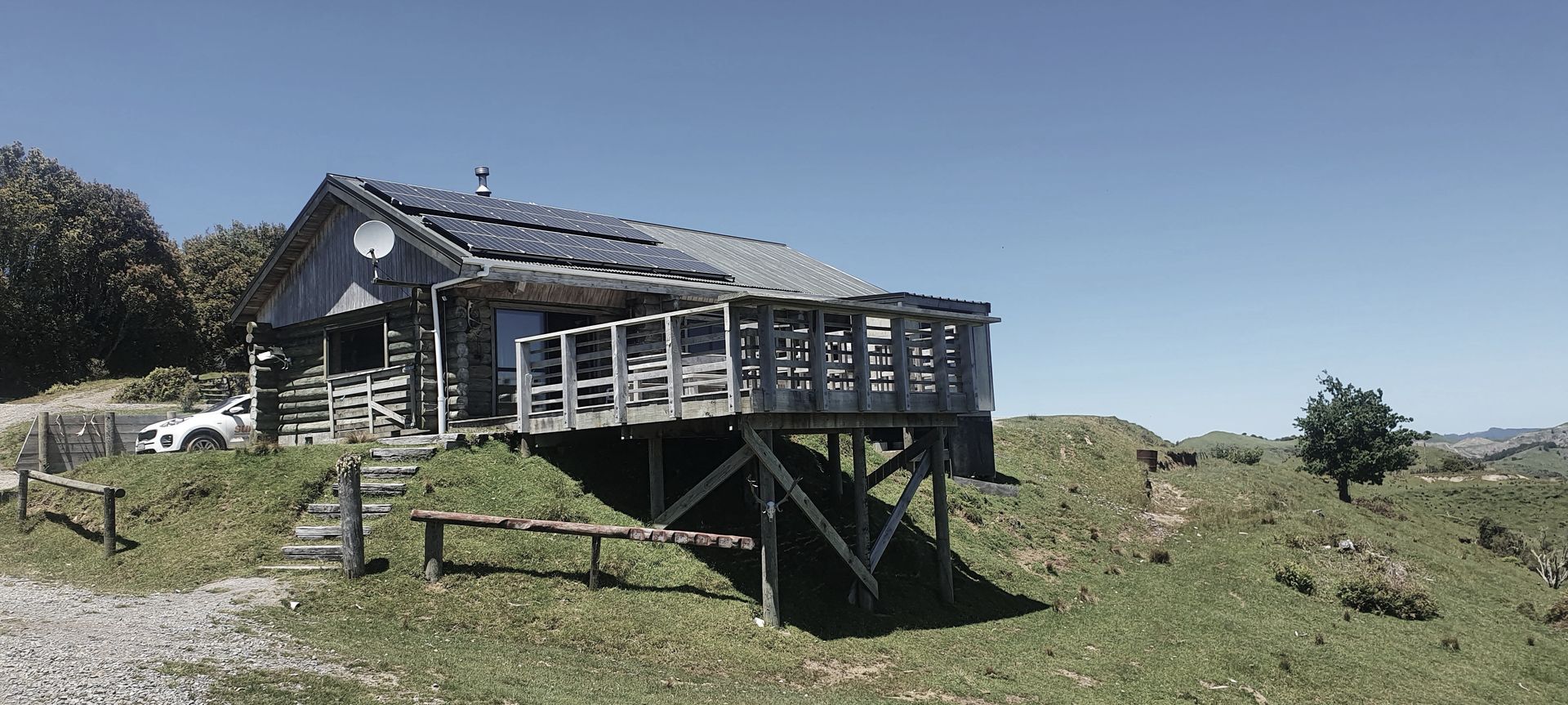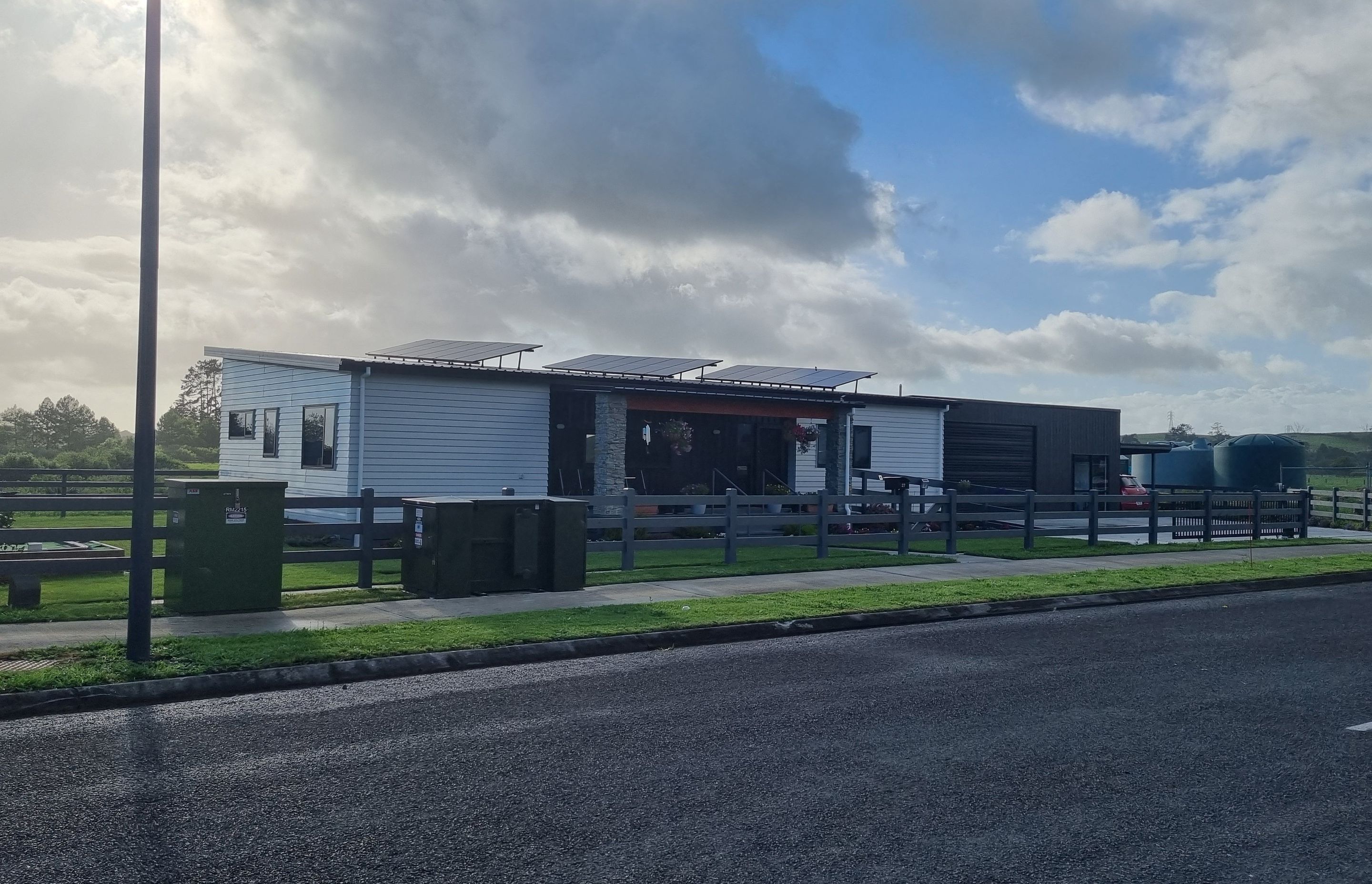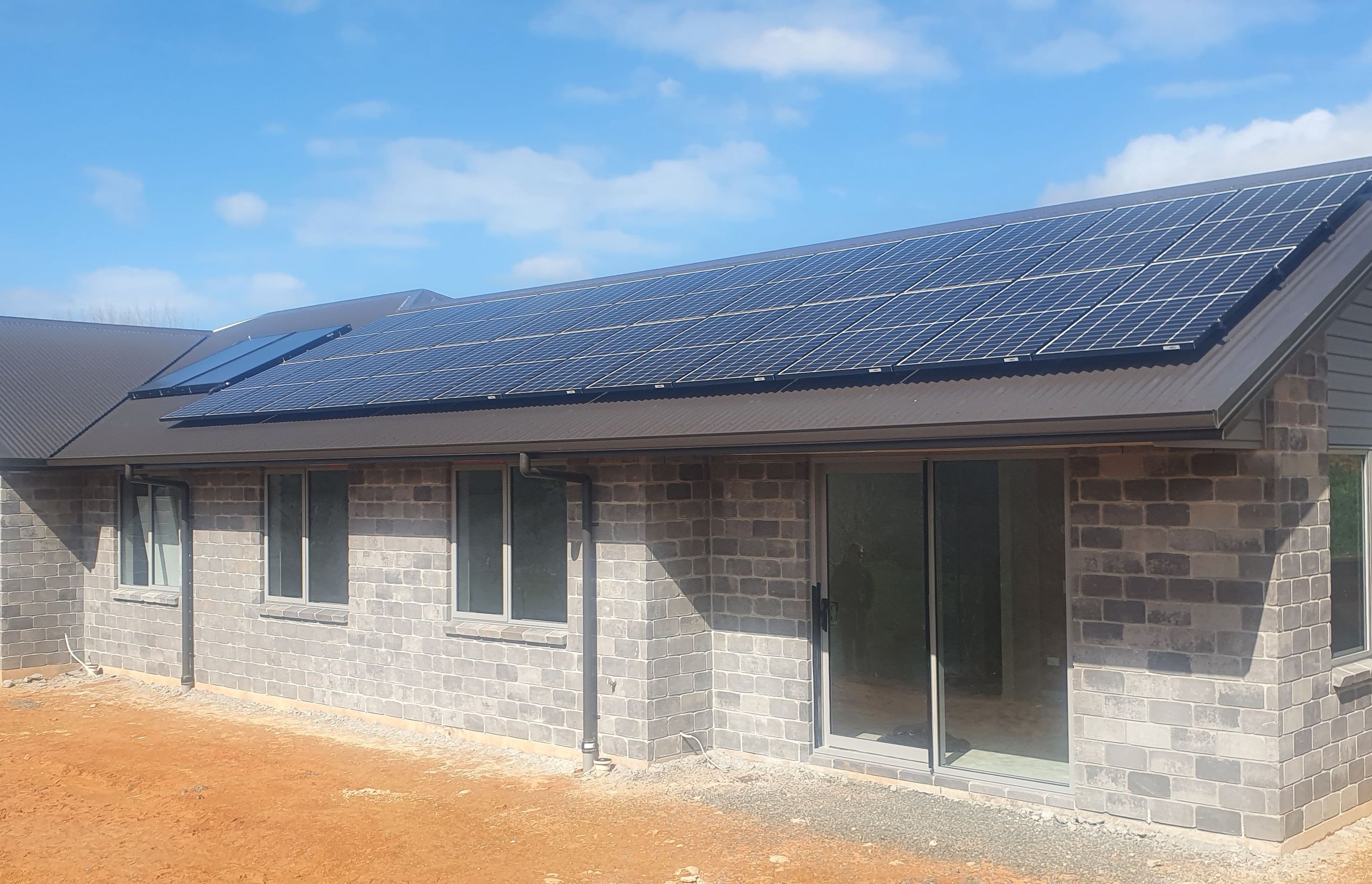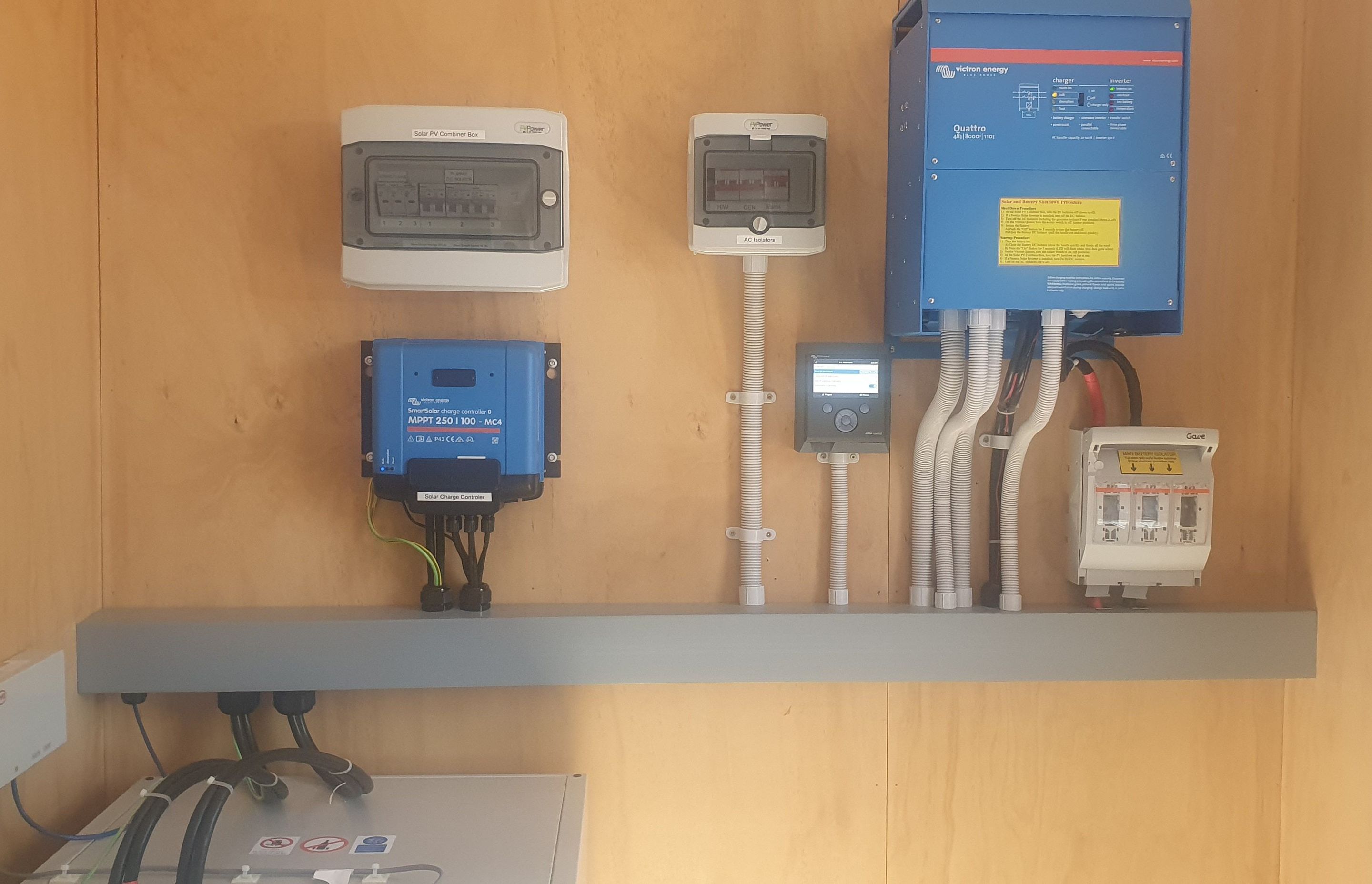Sunny outlook
Written by
14 November 2021
•
7 min read

Harnessing the sun's power has long been a Holy Grail for energy-conscious homeowners. Back in the early days, water heating was the only viable route to go down with solar. But now, through a combination of economies of scale in production, technology advancement in photovoltaic (PV) panels and battery systems, the average homeowner can reap the benefits of investing in an energy-efficient renewable energy solution powered by the sun, says Lawrence Sunz, owner of eponymous Sunz Solar Energy Systems.
“Sunz is a privately owned and operated solar energy business that has been supplying New Zealanders with accessible and affordable solar energy systems since the early 2000s,” he says. “Installing an efficient and cost-effective solar energy system will protect your family from rising electricity costs and give you that feel-good feeling of using 100% renewable energy. You’ll also save money from the day it’s installed, and it’s now one of the smartest investments you’ll make.”
The game changer for solar in the residential sector came last year an online real estate platform studied home sale prices and reported that homes with just a 3kw solar power system on average sell for 4.4% more than those without.
“If you’re selling your home or rental, it now makes financial sense to spend $7,000 on a solar power system, which, on a $600,000 home adds $26,400 (on average) to the sale price! What other investment can match that return? This simply reflects that desirability of solar power systems. Of course, if you’re building a home or not planning on moving anytime soon, you’ll reap the savings year on year before you get the bonus additional sale price down the track.”
The increase in desirability of solar power systems is being driven by a few factors, says Lawrence.
“There’s the continuing rise in the cost of power prices. They have been rising constantly now for over 20 years. On top of historical rising prices, people see constant messages regarding the need to switch to renewable energy to fight climate change.”

While New Zealand’s grid power has a high renewable generation component by world standards, Lawrence says it’s going to be pretty expensive to get the last 10% off fossil fuels, and ultimately the consumer will have to pay the price to do this. Consumers are also aware of the additional demand on the electrical grid that the increasing uptake of EVs will have.
“The extra power must come from somewhere. The environmental aspect of solar is also a big driving factor for some people. Additionally, we are seeing the uncertainty caused by the global pandemic affecting the uptake of solar energy systems. We’ve definitely seen an increase in people looking to go off the grid! Unrelated to the pandemic, the fact that New Zealand ran out of power twice in August due to “record demand” and power was cut to 34,350 homes without warning has some people concerned at the fragility of the New Zealand electricity supply.”
When recommending a solar power system, Lawrence says the key thing is to identify the driving motivation and to match the right system with the right equipment to that motivation.
“If someone wants to run a fridge and freezer in a power outage or make some reasonable savings on a $600 power bill, then a six-panel system on special they saw advertised on TV is not going to do the job.
“My advice to anyone considering a solar energy system is to identify what is your main motivator, what’s most important to you?

The three key motivations for solar
1) Save Money
“For someone who just wants to save money on the power bill then a straight grid-tie system is the ideal system. These are the most cost-effective systems as there are no batteries involved. The national grid is effectively the battery. When you have too much solar power during the day, you send it to the grid. When you have no solar power at night, you buy it from the grid. The more power you used during the day, the more beneficial these systems are. The savings on these systems can also be increased with a hot water diverter. These devices essentially store the excess solar power in the form of hot water. A straight grid-tie system cannot provide power in the event of a grid power outage, so this system is not ideal for anyone wanting power to run a fridge/freezer in a power outage.
2) Environmental reasons.
“Someone wanting to install solar energy to use as much renewable energy as possible would consider a hybrid system, which is a grid tied system with a battery set up to store the excess solar energy for later use at night rather than draw grid power at night. These systems are set up to increase self-consumption (use as much of the power your create as possible). There’s a big feel-good factor from using your own power. While a lot of people install a battery to save money, I’ve yet to see a self-consumption battery on the market that pays for itself at today’s rates of power. While I am 100% certain that the finances on these battery systems will stack up in a few years’ time, at today’s rates, the battery is dead and needs replacing before its paid for itself.
3) Independence
“A lot of people install solar as they want to gain some independence from the national grid. There are generally a couple of levels of independence sought. The basic level is to have essential loads run in the event of a power outage. People want things like the fridge, freezer, and a couple of power points to charge phones to run in a power outage. Again, a battery is needed to do this, but the battery system we would recommend would be slightly different to a self-consumption battery.
On the other end of the scale is a system that can run fully independent of the grid. Aside from the dooms day preppers, people who live in areas where grid power outages are regular or long-lasting require these types of systems, as do people who are building a new home and face a large cost to get the grid connected. Often, it’s a wiser investment to install a full off-grid and not have a power bill at all, then pay a fortune to get the grid connected and then have to pay a power bill. The cost effectiveness of off-grid has improved considerably in recent years with the availability of batteries well suited to the application and the massive reduction in solar panel cost. Again, the type of battery and the specification of the equipment required for this application is remarkably different to either a self-consumption system or a basic backup power system.”
There is no one solar energy set up that suits every application or customer. The best option will depend on what is important to the customer and can be influenced by budget, says Lawrence. “One of the things we pride ourselves on is we ask the right questions, listen to the requirements, and match the right system with the right equipment to meet that requirement.”

Find out more about solar energy options for your home or building project.